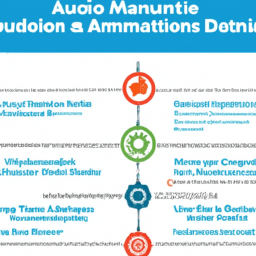What is Digital Marketing Automation?
Digital marketing automation refers to the use of software platforms and technologies designed for marketing departments and organizations to more effectively market on multiple channels online and automate repetitive tasks. By leveraging automation tools, businesses can streamline campaigns, nurture leads, and personalize customer journeys, all while increasing efficiency and reducing manual workload.
Why Businesses Need Digital Marketing Automation
- Efficiency: Automation eliminates time-consuming manual tasks, allowing marketers to focus on strategy and creativity.
- Consistency: Automated systems ensure your brand message is delivered consistently across all channels.
- Personalization: Advanced platforms use data to tailor content, offers, and messaging to individual leads and customers.
- Scalability: As your business grows, digital marketing automation makes it easy to manage and scale campaigns without a proportional increase in resources.
- Analytics: Built-in reporting tools provide valuable insights into campaign performance, helping you optimize your strategy.
Key Features of Digital Marketing Automation Platforms
Email Marketing Automation
Automate the process of sending personalized emails to segmented audiences. Trigger email sequences based on user actions, behavior, or lifecycle stage.
Lead Nurturing & Scoring
Automatically track and score leads based on their engagement, helping sales teams focus on high-quality prospects while nurturing others with relevant content.
Multi-Channel Campaign Management
Coordinate and automate marketing across email, social media, SMS, and other digital channels from a single platform.
How Does Digital Marketing Automation Work?
At its core, digital marketing automation involves integrating various marketing channels and touchpoints into a unified system. Here’s a simplified example of an automated workflow:
- A visitor fills out a form on your website.
- The automation tool adds them to a segmented email list.
- A personalized welcome email is sent automatically.
- Based on their interactions, additional emails or offers are triggered.
- Lead scoring updates in real time, notifying sales when the lead is “hot.”
Benefits and ROI of Digital Marketing Automation
According to recent studies, businesses utilizing digital marketing automation see a significant increase in conversion rates, improved customer retention, and a measurable return on investment. Here are some of the most impactful benefits:
- Higher Conversion Rates: Automated nurturing and targeted messaging turn more leads into customers.
- Reduced Costs: Less manual work means lower operational costs and more efficient use of resources.
- Data-Driven Decision Making: Real-time analytics allow for continuous optimization of campaigns based on performance metrics.
- Improved Customer Experience: Personalization and timely communication increase customer satisfaction and loyalty.
Related Concepts and LSI Keywords
Digital marketing automation is often associated with related concepts such as email automation, lead management, CRM integration, customer segmentation, campaign tracking, and conversion optimization. These elements work together to create a seamless and effective marketing ecosystem.
Incorporating LSI (Latent Semantic Indexing) keywords like marketing automation tools, automated workflows, sales funnel automation, and behavioral targeting into your strategy can help improve your content’s visibility and relevance in search engines.
How to Get Started with Digital Marketing Automation
Ready to implement digital marketing automation in your business? Here are some practical steps to help you get started:
- Define Your Goals: Identify what you want to achieve—lead generation, customer retention, or increased sales.
- Choose the Right Platform: Evaluate different marketing automation platforms based on your needs, budget, and integration requirements.
- Map Your Customer Journey: Understand your audience’s path from awareness to conversion and design automated workflows accordingly.
- Create Quality Content: Develop personalized content for each stage of the buyer’s journey.
- Monitor & Optimize: Use analytics to track performance and continuously refine your automation strategies for better results.
Conclusion
Embracing digital marketing automation can revolutionize your approach to customer engagement, streamline your operations, and drive measurable business growth. By leveraging the right tools and strategies, you can create personalized, data-driven campaigns that deliver results and set your brand apart in the digital marketplace.

